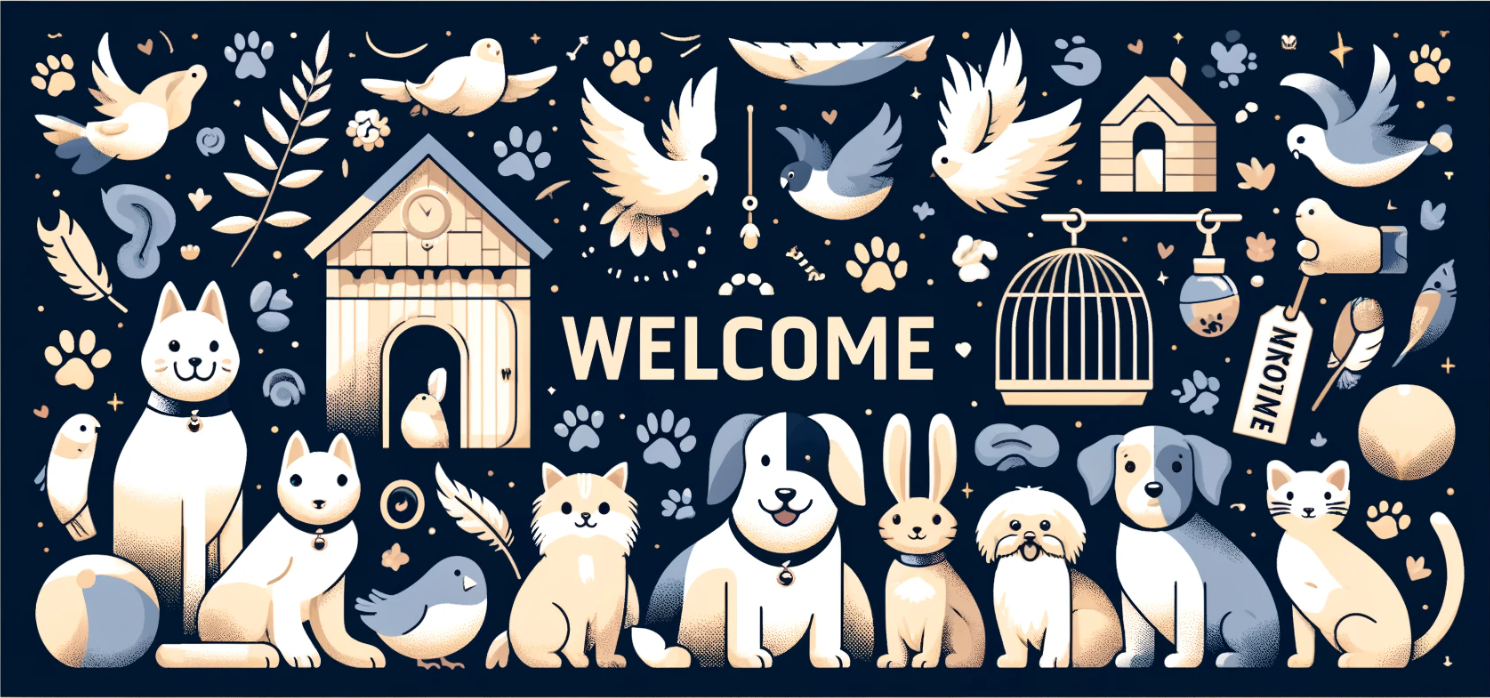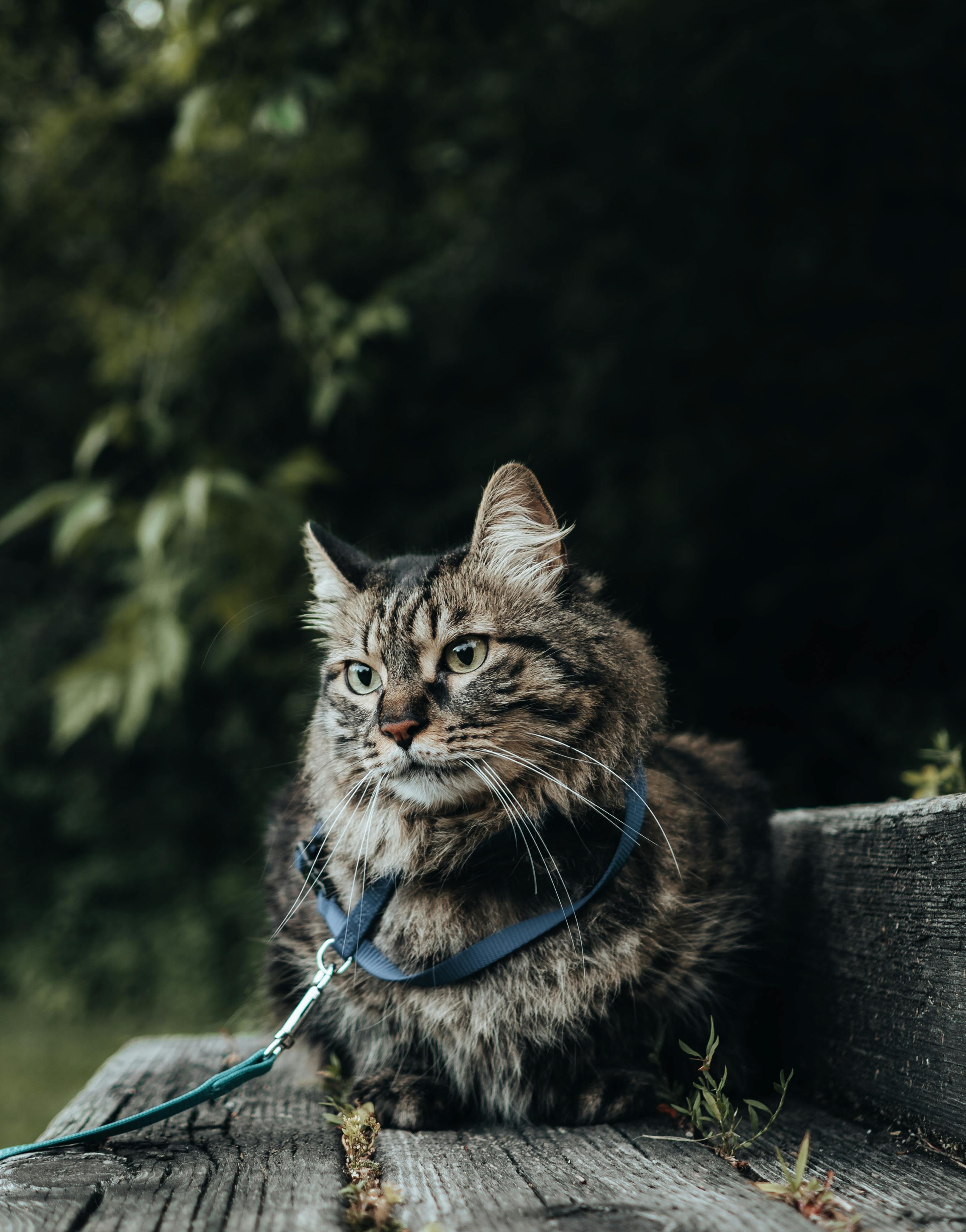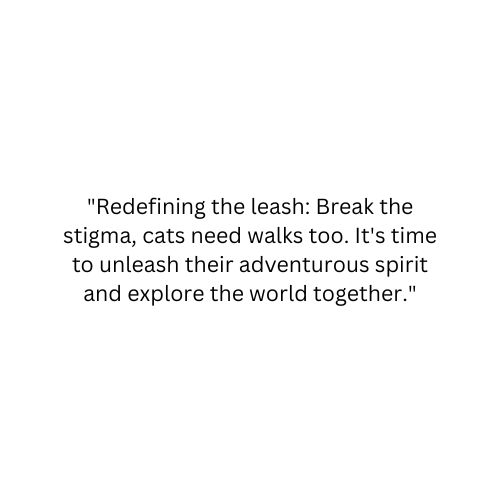
Empowering pets and owners with premium wellness solutions. Our commitment to quality, safety, and education ensures happier, healthier pets and informed owners🐾
-
Example product title
Regular price $19.99 USDRegular priceUnit price / per -
Example product title
Regular price $19.99 USDRegular priceUnit price / per -
Example product title
Regular price $19.99 USDRegular priceUnit price / per
Unlock the fullest potential of your pet's health and happiness by embracing the power of informed, compassionate care
-
Alyssa E.
Having the automated feeder has made my life so much easier! I sometimes have to work late some evenings and this makes sure my little princess is always fed on time.
-
Tyler T.
I found Roxy wasn't drinking nearly enough water per day until I came across the Cat Fountain. I can tell she's been drinking a ton more water now!
-
Stephanie H.
Wow this has been a blessing for our little Bernie. He would eat his kibble immediately once we put it out, so we weren't able to leave him for too long. Now we can feed him remotely right from out
Frequently Asked Questions (FAQs)
Cats experiencing dehydration due to inadequate water intake
Proper hydration is essential for maintaining the health and well-being of our feline companions. Unfortunately, many cats struggle to consume an adequate amount of water, leading to dehydration and potential health issues. Dehydration occurs when a cat's body loses more fluid than it takes in, disrupting vital bodily functions and causing discomfort.
Cats, by nature, have a low thirst drive compared to other animals. This can be attributed to their evolutionary history as desert-dwelling creatures, where they relied on obtaining moisture from their prey. However, in a domestic setting, where their diet may consist primarily of dry kibble, this instinctual behavior can lead to dehydration.
Several factors contribute to inadequate water intake in cats. These include:
Dietary habits: Cats fed a diet primarily composed of dry food may not consume enough water to compensate for the lack of moisture in their diet.
Preference for running water: Cats often prefer drinking from running water sources, such as faucets or fountains, over stagnant water bowls. This preference may discourage them from drinking enough water from a traditional bowl.
Medical conditions: Certain medical conditions, such as kidney disease or urinary tract issues, can increase a cat's risk of dehydration. These conditions may affect their thirst drive or lead to increased fluid loss.
Recognizing the signs of dehydration in cats is crucial for prompt intervention. Symptoms may include lethargy, decreased appetite, dry mouth, sunken eyes, and decreased skin elasticity. If left untreated, dehydration can lead to serious health complications, including kidney failure and organ damage.
To prevent dehydration in cats, owners should take proactive measures to encourage adequate water intake. Providing a combination of wet and dry food, offering multiple clean water sources throughout the home, and investing in a cat fountain to stimulate drinking behavior are all effective strategies.
In conclusion, ensuring that cats receive sufficient hydration is paramount for their overall health and well-being. By understanding the factors contributing to inadequate water intake and taking proactive steps to address them, owners can help prevent dehydration and support their feline companions' longevity and vitality.
Benefits of Using Automatic Food Feeders for Pet Owners
Pet owners who utilize automatic food feeders are taking a proactive approach to ensure their furry companions receive timely and consistent nourishment. These innovative devices provide a convenient solution for busy pet parents, offering a reliable way to manage feeding schedules and portion sizes with ease.
By incorporating automatic food feeders into their daily routine, pet owners can alleviate the stress of adhering to strict feeding times, especially in households with multiple pets or unpredictable schedules. These feeders can be programmed to dispense precise amounts of food at designated intervals, helping to regulate portion control and prevent overfeeding.
Furthermore, automatic food feeders offer peace of mind for pet parents who may be away from home for extended periods, whether due to work commitments or travel. With the assurance that their pets are being fed on schedule, owners can enjoy greater flexibility and freedom without compromising their pets' well-being.
In addition to convenience, automatic food feeders promote healthier eating habits by reducing the likelihood of food-related anxiety or aggression among pets. By removing the association between mealtime and the presence of their owners, pets can develop a more relaxed and positive relationship with food.
Overall, pet parents who incorporate automatic food feeders into their caregiving routine are demonstrating their commitment to providing their pets with optimal nutrition and care, even in the midst of their busy lifestyles. These devices represent a modern solution for modern pet owners, offering convenience, reliability, and peace of mind in one innovative package.
Keeping Kitty Stimulated: Combatting Boredom in Cats
Cats are curious and intelligent creatures, but they can also get easily bored when their environment lacks stimulation. When left without engaging activities, bored cats may exhibit undesirable behaviors such as excessive meowing, scratching furniture, or even aggression. To ensure the well-being of our feline companions, it's essential for pet owners to understand the importance of keeping their cats mentally and physically stimulated.
There are several strategies that pet owners can employ to prevent boredom in their cats. Providing a variety of interactive toys, such as feather wands, puzzle feeders, or laser pointers, can offer mental stimulation and encourage physical activity. Additionally, creating vertical spaces for climbing and perching, such as cat trees or shelves, allows cats to satisfy their natural instinct to explore and observe their surroundings.
Regular play sessions with their owners are also crucial for keeping cats entertained and fostering a strong bond between human and feline. Interactive play sessions provide opportunities for cats to engage their hunting instincts and release pent-up energy in a positive manner. It's important for pet owners to tailor play sessions to their cat's preferences, whether it's chasing after a toy mouse, batting at a feather wand, or engaging in a game of hide-and-seek.
In addition to interactive play, environmental enrichment is key to preventing boredom in cats. Rotating toys and rearranging furniture can provide novelty and keep cats engaged in their surroundings. Providing access to windows for bird-watching or installing a cat-friendly outdoor enclosure can also provide mental stimulation and alleviate boredom.
Ultimately, by incorporating these strategies into their daily routine, pet owners can help prevent boredom in their cats and ensure a happy and fulfilling life for their beloved companions. Keeping cats mentally and physically stimulated not only promotes their overall well-being but also strengthens the bond between cats and their owners.
Balancing Cat Ownership with Lifestyle: Addressing Concerns and Considerations
Owning a cat is a rewarding experience, but it's natural for prospective cat owners to have concerns about how a feline companion will fit into their lifestyle. From busy work schedules to social activities and other commitments, there are many factors to consider when welcoming a cat into your home.
One common concern is ensuring that your cat's needs are met while juggling work responsibilities. Cats are generally independent animals that can adapt well to being alone for periods of time, but it's important to provide them with enough stimulation and attention when you are home. Setting aside dedicated playtime and cuddle sessions can help strengthen the bond between you and your cat, even if your schedule is hectic.
Social activities and travel plans may also raise concerns about caring for your cat. Finding reliable pet sitters or boarding facilities can alleviate worries about leaving your cat alone while you're away. Additionally, technology such as automatic feeders and pet cameras can provide peace of mind by allowing you to monitor and interact with your cat remotely.
Considering how owning a cat will impact your living space is another important consideration. Cat-proofing your home, investing in durable furniture, and providing appropriate scratching posts can help minimize damage and maintain a harmonious environment for both you and your cat.
Ultimately, owning a cat is a lifestyle choice that requires careful consideration and planning. By addressing concerns and making adjustments where necessary, you can ensure that your feline companion enriches your life while complementing your lifestyle seamlessly. With love, patience, and understanding, owning a cat can be a fulfilling and joyful experience for both you and your furry friend.















